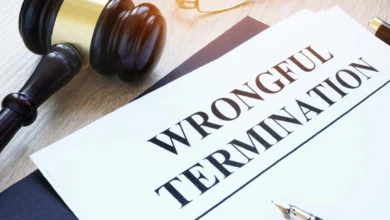Protecting Whistleblowers: Safeguarding Truth and Integrity

Whistleblower protection laws vary globally, with specific legislation in place to shield these individuals from retaliation. Understanding these laws, such as crucial whistleblower laws, can help potential whistleblowers feel more secure about their decisions to report misconduct. In the United States, several federal statutes, such as the Whistleblower Protection Act, provide a framework to protect those who expose wrongdoing. However, the implementation and effectiveness of these laws can often vary by state and the specific circumstances surrounding each case. Thus, having specialized legal support can make a big difference.
Various other legal frameworks worldwide also offer varying degrees of protection. The European Union, for instance, recently implemented the Whistleblower Protection Directive, mandating comprehensive legal protections for whistleblowers in all member states. Understanding the nuances of these laws, whether in the U.S., Europe, or elsewhere, ensures that you can act with confidence and knowledge of your rights.
The Role of Whistleblowers in Modern Society
Whistleblowers have become essential in uncovering unethical practices within organizations. By stepping forward, they help maintain transparency and integrity in various industries. Often, these courageous individuals face substantial risks, yet their efforts bring about significant positive changes. If you live in areas with specific whistleblower laws, such as California, seeking advice from a whistleblower attorney in California can offer clarity and protection. These attorneys specialize in guiding whistleblowers through the complicated maze of legal procedures, ensuring their rights are upheld while they shine a light on misconduct.
History has shown that whistleblowers have effectively exposed fraud, corruption, and illegal activities that would otherwise go unnoticed. Organizations, whether private companies or government bodies, benefit when whistleblowers come forward as they help to instill a culture of honesty and accountability. Without these brave individuals, many social and legal reforms could take much longer to come to fruition, if they happen at all.
Challenges Faced by Whistleblowers
Whistleblowers often face significant challenges, including social ostracism and professional setbacks, despite legal protections. The fear of retaliation can be a substantial barrier, preventing many from coming forward. Addressing these issues is critical to encouraging truth-telling in the workplace. Anonymous reporting mechanisms and strong anti-retaliation policies are some steps organizations can take to mitigate these challenges. In many cases, whistleblowers face emotional and psychological stress, making it crucial for organizations and communities to provide adequate support systems.
Moreover, whistleblowers may confront complex personal dilemmas, weighing their ethical duty to report against the potential fallout in their personal and professional lives. In extreme cases, individuals have lost their jobs, faced legal battles, or experienced severe stress and anxiety. Comprehensive support systems, including counseling and legal advice, can help whistleblowers navigate these challenges more effectively.
The Importance of a Supportive Culture
Creating a supportive culture within organizations is vital. Companies should establish precise reporting mechanisms and assure employees that their concerns will be addressed without fear of retribution. Open communication channels and training programs can foster an environment where employees feel safe to report unethical practices. Management must also lead by example, demonstrating a commitment to integrity and transparency at all levels.
Regular training and workshops on ethical behavior and anti-retaliation policies can foster trust and openness. Employees should feel confident that their concerns will be taken seriously and that they will not suffer retribution for coming forward. A genuinely supportive culture makes identifying and addressing issues easier before they escalate, benefiting the organization and workforce.
Notable Whistleblower Cases and Their Impact
Historical cases, such as those involving publicized corporate scandals, illustrate the profound impact whistleblowers can have on exposing corruption and prompting policy changes. Figures like Jeffrey Wigand in the tobacco industry and Sherron Watkins in the Enron scandal have highlighted the importance of whistleblowers in bringing about monumental changes. These cases had far-reaching consequences, influencing public policy and corporate governance and raising awareness about the importance of ethical behavior in business practices.
Moreover, these high-profile cases have inspired a new generation of whistleblowers, demonstrating that the risks they take can lead to significant societal benefits. The ripple effect of their actions often extends beyond immediate legal consequences, fostering a broader culture of accountability and transparency within industries and governments. Their stories serve as powerful reminders of the impact that one individual’s courage can have on the greater good.
How to Be an Effective Whistleblower
- Keep detailed records and evidence of the wrongdoing.
- Research relevant laws and protections before proceeding.
- Consider seeking legal advice or support from advocacy groups.
- Report to appropriate authorities or use anonymous hotlines if available.
Being a whistleblower requires meticulous preparation and awareness of the legal context. Keeping detailed records and evidence ensures that your claims are substantiated and increases the likelihood of a successful outcome. Researching the relevant laws and protections, whether in federal statutes or state-specific regulations, can also inform your approach and help safeguard your rights.
Legal advice or support from advocacy groups can offer additional protection and guidance, ensuring you take the correct steps and avoid potential pitfalls. Whistleblowing can be daunting, but with the proper preparations and support systems in place, you can maximize the impact of your actions while minimizing personal risk.
Resources and Support for Whistleblowers
Numerous organizations provide resources and support for whistleblowers. Knowing where to turn for guidance can make a significant difference. Organizations like the National Whistleblower Center and the Government Accountability Project are dedicated to helping whistleblowers navigate their path and ensure their protection. They offer legal advice, resources, and support networks that can provide crucial assistance throughout the whistleblowing process.
These organizations also actively advocate for stronger whistleblower protections and raise public awareness about the importance of ethical behavior. Their work builds a more transparent and accountable society where whistleblowers feel empowered to come forward. By utilizing these resources, potential whistleblowers can better understand their rights and the steps they need to take to report misconduct effectively.
The Future of Whistleblowing
The future of whistleblowing hinges on continued legal advancements and cultural shifts. Ongoing efforts to strengthen protections and support mechanisms are essential in fostering an environment where truth prevails. With the increasing recognition of whistleblowers’ value, hope exists for a more transparent and accountable world. Governments and organizations must continue evolving policies to provide comprehensive protections and resources for whistleblowers.
Technological advancements also shape the future of whistleblowing. Secure reporting platforms and anonymous communication tools can make it easier for individuals to report misconduct without fear of exposure. As society progresses, there is a growing consensus that protecting whistleblowers is not just a legal necessity but a moral imperative. We can create a more just and equitable world by supporting these brave individuals.



